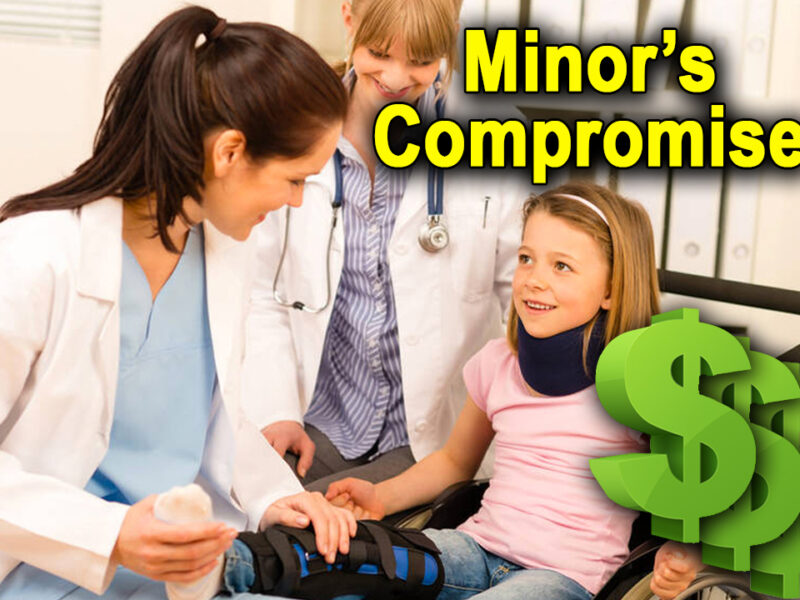When a child suffers injuries in an accident, California law provides special protections to safeguard their interests in any resulting personal injury settlement. This process, known as a “minor’s compromise,” requires court approval to ensure the settlement serves the child’s best interests.
What is a Minor’s Compromise?
A minor’s compromise is a legal requirement under California Code of Civil Procedure Section 372 and California Rules of Court 7.950-7.952. It mandates court approval for any settlement agreement involving a minor plaintiff. This protection exists because minors cannot legally enter into contracts, including settlement agreements, on their own behalf.
Why Court Approval is Required
The court approval requirement serves several essential purposes:
- Protection of the minor’s interests against potential exploitation
- Ensuring the settlement amount adequately compensates the minor for their injuries
- Proper management and preservation of settlement funds until the minor reaches adulthood
- Prevention of potential conflicts of interest between the minor and their guardian
The Minor’s Compromise Process
To obtain court approval for a minor’s settlement, the child’s guardian ad litem (usually a parent) must file a petition with the court. This petition must include:
- Detailed information about the accident and resulting injuries
- Complete medical records and bills
- Documentation of any permanent injuries or future medical needs
- The proposed settlement amount and its breakdown
- Attorney fees and costs
- The proposed plan for managing settlement funds
The court will review these materials and may schedule a hearing to evaluate whether the settlement serves the minor’s best interests.
Managing Settlement Funds
California law provides several options for managing settlement funds awarded to minors:
Blocked Accounts: The most common method involves placing funds in a court-blocked account at an FDIC-insured financial institution. These funds cannot be withdrawn without court approval until the minor reaches 18 years of age.
Structured Settlements: For larger settlements, structured settlements may be arranged to provide periodic payments over time, often extending beyond the minor’s 18th birthday to ensure long-term financial security.
Special Needs Trusts: In cases involving permanent disabilities, a special needs trust might be established to preserve the minor’s eligibility for public benefits while providing for additional care needs.
The Court’s Role in Protecting Minors
Judges take their role in the minor’s compromise process seriously. They will carefully review:
- The settlement amount in relation to the injuries sustained
- The reasonableness of attorney fees
- Any medical liens or outstanding bills
- The proposed plan for managing settlement funds
- The overall fairness of the settlement terms
The court may reject settlements deemed inadequate or modify terms to better protect the minor’s interests.
Working with Experienced Counsel
Given the complexity of minor’s compromise proceedings, it’s crucial to work with attorneys experienced in handling these cases. Experienced counsel will:
- Properly document and present the case to the court
- Navigate complex medical liens and insurance issues
- Structure settlements to maximize long-term benefits
- Ensure compliance with all legal requirements
- Advocate for the minor’s best interests throughout the process
Time Considerations
While California’s statute of limitations for personal injury claims is generally two years, minors benefit from extended deadlines. The statute of limitations for a minor’s claim doesn’t begin running until they turn 18. However, it’s generally advisable to pursue claims promptly while evidence and witnesses remain available.
Looking Ahead
Parents and guardians should consider several factors when evaluating settlement proposals:
- The potential for future medical needs
- Impact on the minor’s future educational or employment opportunities
- Long-term effects of any permanent injuries
- The timing and structure of settlement payments
- Tax implications and effect on public benefits eligibility
Understanding the minor’s compromise process helps ensure that injured children receive fair compensation and that their recovery is properly protected for their future benefit. Our experienced attorneys here at Woolf Legal can guide families through this complex process, ensuring compliance with all legal requirements while advocating for the best possible outcome for the injured child.
